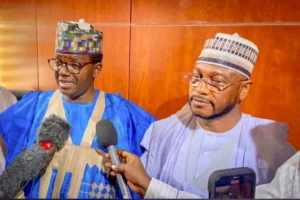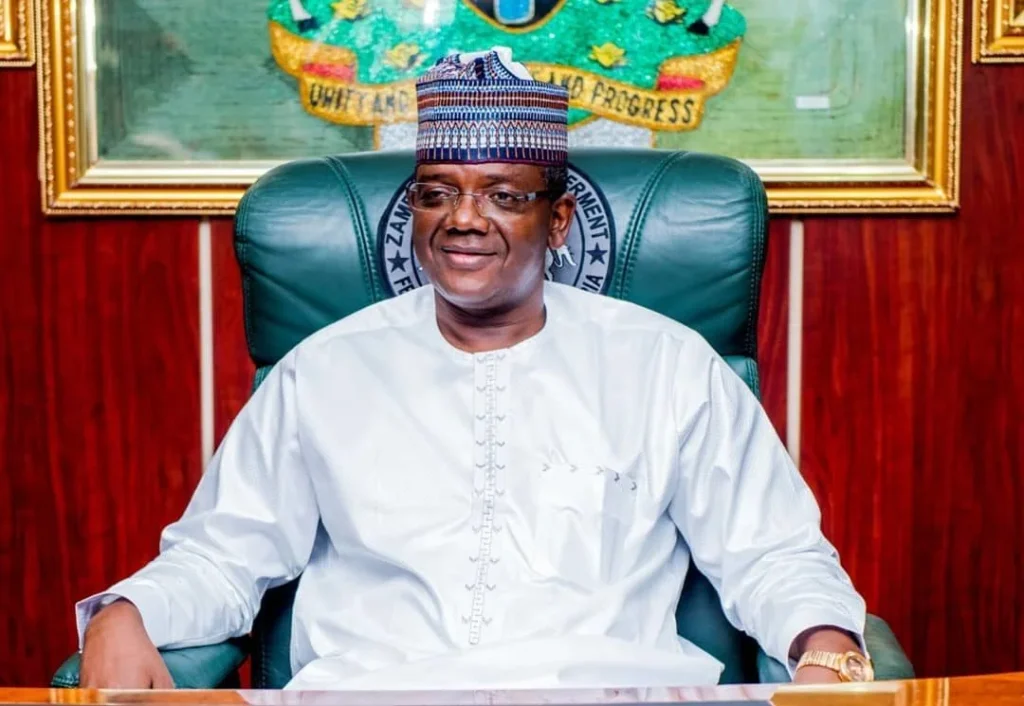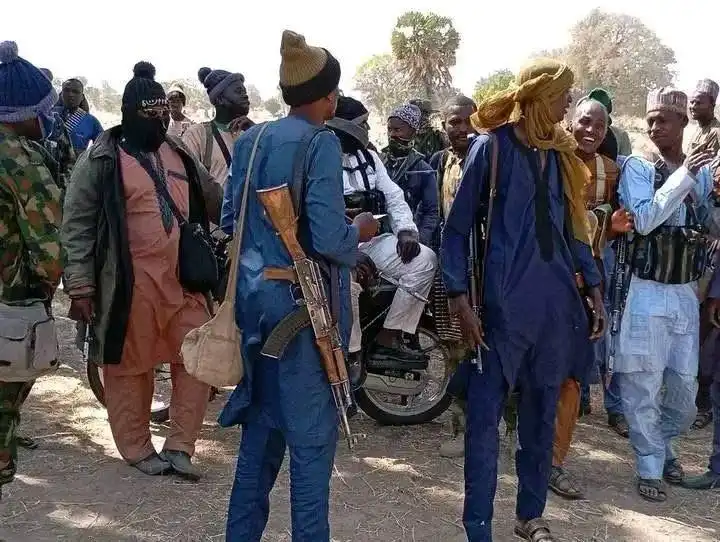In a move that redefined Zamfara State’s political trajectory and reverberated across Nigeria’s national landscape, Governor Bello Mohammed Matawalle formally defected from the Peoples Democratic Party (PDP) to the All Progressives Congress (APC). This major realignment, which took place in June 2021, did not only consolidate the ruling APC’s hold on the northwest region but also significantly weakened the opposition’s influence in one of its last remaining strongholds.
Governor Matawalle’s defection was long anticipated, with months of political signaling, high-profile meetings, and visits by APC leaders hinting at an impending switch. When the announcement finally came, it set off a wave of realignments among state officials, lawmakers, and party members, many of whom promptly followed Matawalle into the APC.
A Sweeping Defection That Reshaped State Politics
The governor’s defection was not an isolated event. On the same day he declared his switch to the APC, all three senators representing Zamfara, six members of the House of Representatives, and the vast majority of state lawmakers joined him in abandoning the PDP.
This unprecedented mass exodus effectively collapsed the PDP’s structure in Zamfara and handed full political control of the state to the APC. The move gave the ruling party a significant numerical advantage ahead of the 2023 general elections, further consolidating its dominance in the region.
The defection was formalized at a well-attended rally held in the state capital, Gusau, where APC national leaders, including Yobe State Governor Mai Mala Buni (then Chairman of the APC Caretaker Committee), welcomed Matawalle into the party. The event turned into a show of strength, with thousands of supporters flooding the streets and declaring their loyalty to the governor’s new political platform.

Governor’s Justification: ‘APC Offers Better Platform for Development’
Speaking during the defection ceremony, Governor Matawalle explained his decision as one driven by a desire to bring accelerated development and security to Zamfara. He argued that aligning with the party at the center would enable him to better collaborate with federal authorities and access resources needed to tackle the security crisis plaguing the state.
According to Matawalle, “This decision was made in the best interest of the people of Zamfara. I believe working in synergy with the government at the federal level through the APC will enable us to address the challenges facing our state more effectively.”
He expressed hope that the new alliance would help stabilize the state, which has long grappled with violent banditry, kidnappings, and rural insecurity.
PDP Reacts with Disappointment, But Vows to Regroup
The Peoples Democratic Party reacted swiftly to the governor’s defection, expressing disappointment but affirming its commitment to rebuilding its presence in Zamfara and beyond. In a strongly worded statement, PDP leadership accused the APC of luring Matawalle with promises of protection and political advantage, warning that such moves erode the integrity of Nigeria’s democratic institutions.
The PDP emphasized that the party structure in Zamfara remained intact, even as many of its key members switched allegiance. The party also challenged the legality of Matawalle retaining his governorship seat after defecting, insisting that voters had elected him under the PDP banner and that he should vacate office if he no longer represented their mandate.
Despite the setback, PDP leaders across the country vowed to fight back and win over the electorate through renewed grassroots mobilization and internal reforms.
APC Hails Matawalle’s Move as Strategic Victory
The APC, on the other hand, celebrated the defection as a major win, describing it as evidence of growing public trust in its governance and ideology. The party welcomed Matawalle and his allies with open arms and assured him of full cooperation in steering Zamfara toward economic recovery and security reform.
Governor Mai Mala Buni, who played a pivotal role in negotiating the defection, described Matawalle’s move as “historic” and a reflection of his patriotism. “We are proud to receive a governor who has demonstrated leadership in times of great difficulty. Together, we will secure Zamfara and bring progress to its people,” Buni said during the rally.
The APC’s national leadership also touted the defection as a sign of momentum ahead of the 2023 elections, citing similar switches by other politicians across the country.
Legal and Constitutional Debate Follows the Defection
Governor Matawalle’s defection triggered a legal and constitutional debate across Nigeria, with lawyers, political analysts, and civil society groups divided over the implications. While the Nigerian constitution allows freedom of association, some experts argued that elected officials—especially governors—should seek a fresh mandate from the electorate if they change parties midterm.
This argument was grounded in the principle that the mandate belongs to the party through which a candidate is elected. The PDP threatened legal action to test this theory in court, pointing to previous judgments where legislators who defected lost their seats.
However, APC loyalists maintained that the constitution protected Matawalle’s right to switch parties without losing his position, especially since there was no evidence of a crisis in the PDP at the time of his defection.
Impact on 2023 General Elections and National Politics
Governor Matawalle’s move added to a growing list of high-profile defections from the PDP to the APC in the lead-up to the 2023 elections. Political observers noted that the ruling party was gradually absorbing strategic opposition figures, thereby increasing its influence and reducing the number of viable challengers at both state and federal levels.
In the broader context of Nigeria’s political evolution, Matawalle’s defection highlighted the fluid nature of party loyalty and the persistent challenges of party ideology, discipline, and internal democracy. Many Nigerians expressed concern over the frequency of defections and what it signified for long-term political stability.
For Zamfara, however, the focus remained on whether the governor’s switch would translate into better governance, improved security, and tangible development for a state that has endured years of turmoil.
Conclusion: A State Recalibrates, A Party Regroups
Governor Matawalle’s defection to the APC marked a turning point in Zamfara’s political history. With the PDP weakened and the APC gaining full control of the state apparatus, the stakes for 2023 became even higher.
While the ruling party hailed the move as progress, critics questioned its democratic cost. As both sides geared up for the next election cycle, Zamfara remained a microcosm of Nigeria’s shifting political alliances—where ambition, strategy, and survival often override ideology.






